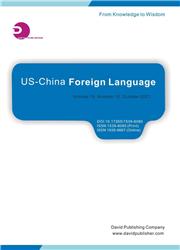Voices Across Borders: Iranian EFL Students’ Perspective on Argumentative Writing
引用次数: 0
Abstract
This study focuses on the perspectives of Iranian English as a foreign language (EFL) students studying at Korean universities on argumentative writing. Thematic analysis and MAXQDA2022 software examine data collected via an online open-ended questionnaire and semi-structured interviews. Students’ approaches to supporting assertions, preferences for sentence structures and terminology, tactics for answering counterarguments, obstacles in different areas of argumentative writing, and overall impressions of argumentative essays are the focus of the research topics. Several significant themes and patterns emerge from the findings, including the significance of supporting statements with evidence, the preference for simple language structures and terminology, minimal engagement with counterarguments, and the difficulties encountered in the introduction, body, and conclusion parts. The policy and language education implications are examined, emphasizing the importance of instructional assistance, vocabulary-building initiatives, critical thinking integration, scaffolded writing instruction, and the use of technology. These findings contribute to a better understanding of the demands of Iranian EFL students and can help guide the creation of successful argumentative writing instruction. More study is needed to investigate new tactics and interventions to improve argumentative writing skills and boost EFL students’ academic achievement.跨国界的声音:伊朗英语学生议论文写作的观点
本文章由计算机程序翻译,如有差异,请以英文原文为准。
求助全文
约1分钟内获得全文
求助全文

 求助内容:
求助内容: 应助结果提醒方式:
应助结果提醒方式:


